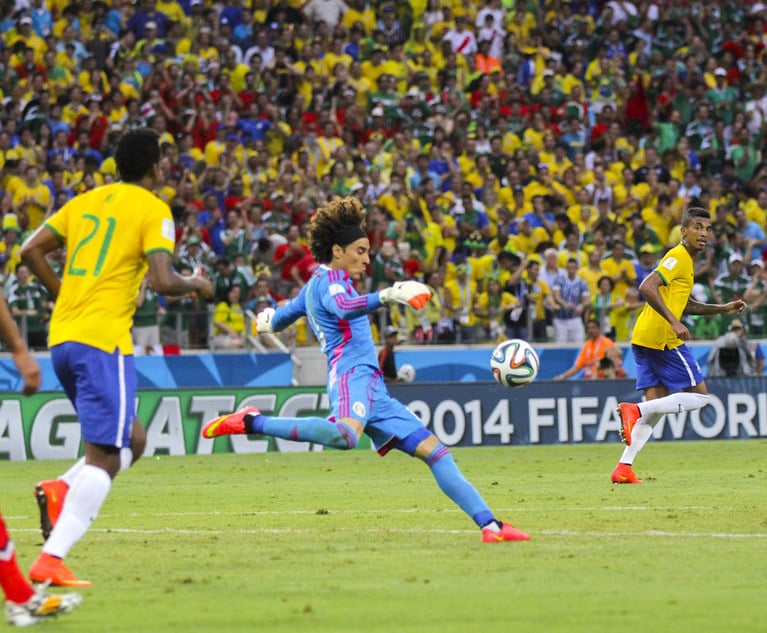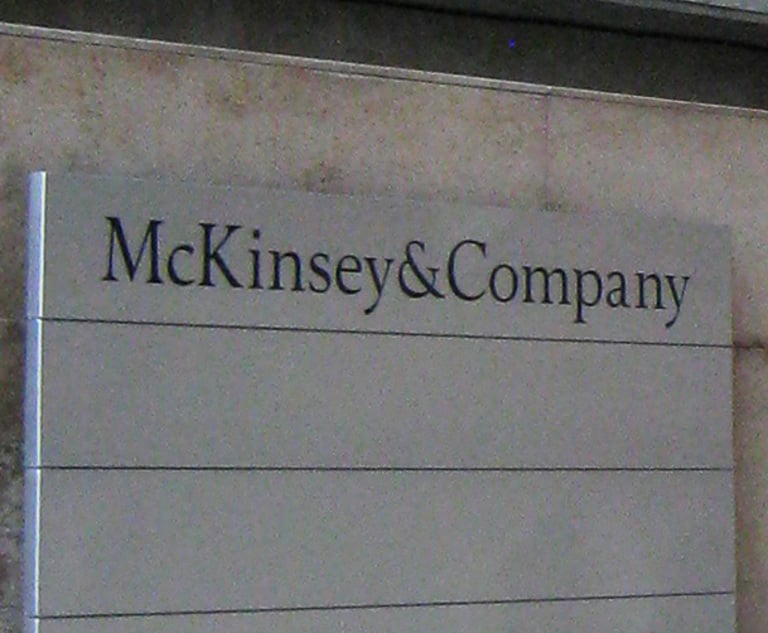 Mexican President Andrés Manuel López Obrador. Photo: Octavio Hoyos/Shutterstock.com
Mexican President Andrés Manuel López Obrador. Photo: Octavio Hoyos/Shutterstock.comLawyers Adapt to New Realities in Mexico
Andrés Manuel López Obrador, elected one year ago, has made big structural changes to Mexico's economy and plans to do more. What has that meant for lawyers?
August 01, 2019 at 03:37 PM
6 minute read
A little more than a year has passed since the populist Mexican President Andrés Manuel López Obrador – frequently referred to as AMLO – was elected in a landslide victory. Since then, fears of political risk and U.S. threats to restrict and hamper trade have persisted, inhibiting investment and clouding the outlook for economic growth in Mexico.
For lawyers, this has meant a slowdown in some profitable work, such as deal activity, but an increase in advisory work as Mexicans look to sell assets at home and abroad.
"I would describe the anxiety that I'm seeing inside the c-suite, in the boardroom, as the highest I've seen since probably around the Tequila Crisis in the mid-1990s," says Jones Day partner Michael McGuinness, referring to the financial crisis sparked by the sudden devaluation of the peso. That crisis led to hyperinflation, thousands losing their homes, banks collapsing and, eventually, a $50 billion bailout orchestrated by the International Monetary Fund.
Sliding confidence more recently has resulted in a marked decline in merger and acquisition activity.
According to Transactional Track Record, which tracks M&A transactions, 125 Mexican deals with a combined reported value of $15.5 billion have been made in the 12 months through June 2019 – the year following López Obrador's sweeping July 1, 2018 electoral win. That's down from 184 transactions with a combined reported value of $34.5 billion in the 12 months leading up to the election.
The dropoff came amid ongoing unease related to trade relations – even though Mexico has already agreed to the terms of a new North American free trade agreement, the USMCA. Canada and the U.S. still must ratify the agreement, however, and as recently as June, U.S. President Donald Trump was threatening to slap a 25% tariff on all Mexican imports.
Some of the decline might also be attributable to a rush to get deals done ahead of the 2018 Mexican election, out of fear of what might come, says Chantal Kordula, a New York-based partner with Cleary Gottlieb Steen & Hamilton who has worked on Mexico transactions since 1997.
McGuinness, a New York-based partner who has worked on cross-border corporate transactions in Mexico for more than two decades, sees clients "sandwiched" between two unpredictable forces: on one side, hostility from the Trump administration and on the other, a nationalist president in Mexico who is retreating from the liberalisation trend that has dominated the country for much of the past 25 years.
López Obrador has been swift to enact change, killing an ambitious international airport project even before he took office last December. The $13 billion aviation hub for the capital was already about a third-built. He also cancelled energy auctions.
Last week, the IMF trimmed its forecast for 2019 economic growth in Mexico to 0.9%, citing lacklustre investment, slumping confidence and sluggish consumer spending. López Obrador, who calls his government the "Fourth Transformation", equating it with key milestones such as Mexico's independence from Spain, lambasted the IMF as an organisation that "imposed neoliberal economic policy that caused much misfortune in Mexico".
But the downturn does not necessarily mean all M&A work for lawyers has dried up. Under the current economic and political climate, a growing number of wealthy Mexican families and conglomerates have been looking to diversify their holdings. That means selling assets and hunting for opportunities in places like the U.S., Spain and South America.
There are some bright spots as well. Kordula sees ongoing interest in Mexico from Canadian pension funds, for example. And she points to a recent uptick in capital markets activity to show that Mexican firms continue to raise money to invest and grow businesses in their home market.
"Life goes on, right? You do the best you can to manage the potential risks, but I think people can't be at a standstill for six years," Kordula says.
Mexican presidents are limited to a single, six-year term.
Jean Michel Enríquez, a partner at Creel, García-Cuéllar, Aiza and Enríquez – a top Mexican firm for M&A work – compares the structural shifts in Mexico's economy under AMLO to a change in regime.
"This is not business as usual," he says. "When there's such a fundamental change in a country view, in the philosophy of what a country should look like and how it should work, there's bound to be short-term instability."
Nevertheless, Enríquez says he is as busy as ever.
Some foreign investors who see Mexico as a strategic country both geographically and as a key player in supply chains, view the current rough patch as a buying opportunity and are actively searching for assets, lawyers say.
Strategic investors that acquire companies in their own fields can squeeze synergies and savings from those acquisitions. But for financial investors such as private equity firms, which look to make U.S. dollar returns within 10 years, Mexico has become a tougher sell – especially when analysing businesses with peso-denominated sales.
"There's a ton of buyers out there, it's just that they're willing to pay less than the [sellers] want," Enríquez says.
Luis Nicolau, a partner at another top Mexican M&A firm – Ritch, Mueller, Heather and Nicolau – describes recent deals as lower profile and limited to specific growth sectors, such as healthcare and consumer goods.
And to some, Mexico still has strong appeal. Lawyers and investors active in parts of the developing world view the risks in Mexico as relatively low compared with other markets. Mexico ranks 54th out of 190 countries in the World Bank's Doing Business Report, in which a lower number means greater ease in doing business.
In addition, Mexico is not the only country that has been rocked recently by political uncertainty: lawyers note that plenty of developed countries have been affected by Britain's looming exit from the European Union, for example.
Even with slow economic growth, Mexico's 120 million consumers and $1.2 trillion economy make for a large enough market to entice investors, says Enríquez, who remains optimistic about M&A activity. He is working on a $1 billion transaction involving a foreign investor that he expects to be signed this year, and has another multibillion-dollar transaction in progress for a large portfolio of industrial properties in which all the interested buyers are overseas.
"I think people will hunker down for the next couple of years and sort of wait it out and find pockets of growth and invest there," he says.
Investors with a long-term vision and strong negotiating skills, he added, "are going to make a killing".
|Related Reading:
Mexico Has a New President: What Does that Mean for Latin America-Focused Lawyers?
This content has been archived. It is available through our partners, LexisNexis® and Bloomberg Law.
To view this content, please continue to their sites.
Not a Lexis Subscriber?
Subscribe Now
Not a Bloomberg Law Subscriber?
Subscribe Now
NOT FOR REPRINT
© 2024 ALM Global, LLC, All Rights Reserved. Request academic re-use from www.copyright.com. All other uses, submit a request to [email protected]. For more information visit Asset & Logo Licensing.
You Might Like
View All
FIFA Faces Legal Challenge Over Winning Saudi World Cup Bid Vetted by Clifford Chance
2 minute read
After Regime Change, Syria Remains Liable in US Courts for Alleged Assad-Era Terrorism Support
3 minute read
Lebanese Lawyers Hopeful But Wary After Collapse of Neighboring Syrian Government
3 minute read
McKinsey Subsidiary to Pay Over $122 Million to Settle US Investigation into South Africa Bribery Case
Trending Stories
- 13 Incidents Lead to Charges Against the Alexander Brothers; Cousin Remains at Large
- 2Sidley Austin Elects Biggest Combined Class of Partners and Counsel in Firm History
- 3High Court Drops Case Over Nvidia's Effort to Ditch Fraud Suit
- 4Commentary: Law, Literature and Revenge
- 5Attorneys, Professors Share Support for Chancellor Following Musk's Online Attacks
Who Got The Work
Michael G. Bongiorno, Andrew Scott Dulberg and Elizabeth E. Driscoll from Wilmer Cutler Pickering Hale and Dorr have stepped in to represent Symbotic Inc., an A.I.-enabled technology platform that focuses on increasing supply chain efficiency, and other defendants in a pending shareholder derivative lawsuit. The case, filed Oct. 2 in Massachusetts District Court by the Brown Law Firm on behalf of Stephen Austen, accuses certain officers and directors of misleading investors in regard to Symbotic's potential for margin growth by failing to disclose that the company was not equipped to timely deploy its systems or manage expenses through project delays. The case, assigned to U.S. District Judge Nathaniel M. Gorton, is 1:24-cv-12522, Austen v. Cohen et al.
Who Got The Work
Edmund Polubinski and Marie Killmond of Davis Polk & Wardwell have entered appearances for data platform software development company MongoDB and other defendants in a pending shareholder derivative lawsuit. The action, filed Oct. 7 in New York Southern District Court by the Brown Law Firm, accuses the company's directors and/or officers of falsely expressing confidence in the company’s restructuring of its sales incentive plan and downplaying the severity of decreases in its upfront commitments. The case is 1:24-cv-07594, Roy v. Ittycheria et al.
Who Got The Work
Amy O. Bruchs and Kurt F. Ellison of Michael Best & Friedrich have entered appearances for Epic Systems Corp. in a pending employment discrimination lawsuit. The suit was filed Sept. 7 in Wisconsin Western District Court by Levine Eisberner LLC and Siri & Glimstad on behalf of a project manager who claims that he was wrongfully terminated after applying for a religious exemption to the defendant's COVID-19 vaccine mandate. The case, assigned to U.S. Magistrate Judge Anita Marie Boor, is 3:24-cv-00630, Secker, Nathan v. Epic Systems Corporation.
Who Got The Work
David X. Sullivan, Thomas J. Finn and Gregory A. Hall from McCarter & English have entered appearances for Sunrun Installation Services in a pending civil rights lawsuit. The complaint was filed Sept. 4 in Connecticut District Court by attorney Robert M. Berke on behalf of former employee George Edward Steins, who was arrested and charged with employing an unregistered home improvement salesperson. The complaint alleges that had Sunrun informed the Connecticut Department of Consumer Protection that the plaintiff's employment had ended in 2017 and that he no longer held Sunrun's home improvement contractor license, he would not have been hit with charges, which were dismissed in May 2024. The case, assigned to U.S. District Judge Jeffrey A. Meyer, is 3:24-cv-01423, Steins v. Sunrun, Inc. et al.
Who Got The Work
Greenberg Traurig shareholder Joshua L. Raskin has entered an appearance for boohoo.com UK Ltd. in a pending patent infringement lawsuit. The suit, filed Sept. 3 in Texas Eastern District Court by Rozier Hardt McDonough on behalf of Alto Dynamics, asserts five patents related to an online shopping platform. The case, assigned to U.S. District Judge Rodney Gilstrap, is 2:24-cv-00719, Alto Dynamics, LLC v. boohoo.com UK Limited.
Featured Firms
Law Offices of Gary Martin Hays & Associates, P.C.
(470) 294-1674
Law Offices of Mark E. Salomone
(857) 444-6468
Smith & Hassler
(713) 739-1250







